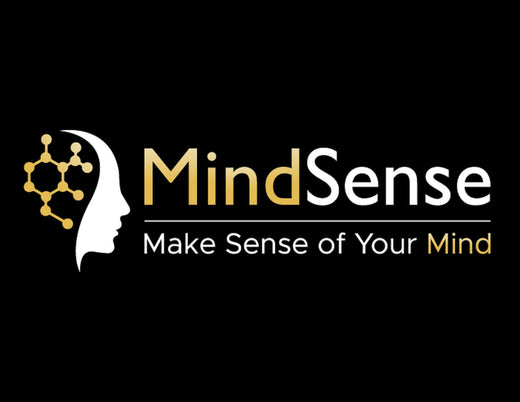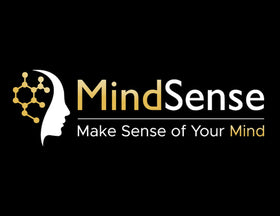Decoding the Symphony: Interactions of Brain Neurotransmitters in Mood, Memory, and Focus
The human brain is a complex and intricate system that relies on the interactions of neurotransmitters to regulate mood, memory, and focus.
Neurotransmitters are chemical messengers that transmit signals between neurons, influencing various cognitive processes. Understanding the intricate dance of neurotransmitter interactions is crucial in unraveling the mysteries of our mental and emotional well-being. This extensive article will explore the conversion processes of key neurotransmitters involved in mood, memory, and focus. We will also delve into the role of various nutrients, such as SAM-e, vitamins, and minerals, in facilitating these conversion processes.
Additionally, we will examine the ramifications of imbalances in neurotransmitter levels, both in terms of excess and deficiency. So, let's embark on this enlightening journey to decipher the complex world of neurotransmitter interactions within the brain. A simpler article describing each of the neurotransmitters mentioned below can also be found in the following article.
Neurotransmitters and Brain Health: Achieving Balance with Essential Nutrients
Section 1: Dopamine Pathway and Its Interactions
1.1. Dopamine: The Pleasure and Reward Molecule
Dopamine is a neurotransmitter that plays a vital role in motivation, reward, movement, and pleasure. It is synthesized from the precursor molecule L-Dopa through the action of an enzyme called aromatic L-amino acid decarboxylase (AADC). Several nutrients are involved in this conversion process, including vitamin B6, iron, and copper. Deficiencies in these nutrients can impair the synthesis of dopamine, leading to a range of neurological and psychological symptoms. Conversely, excessive dopamine levels can result in hyperactivity, impulsivity, and risky behaviors. In addition, there may be natural ways to get dopamine levels back to their normal levels. These may include the following;
- Enduring a good sleep schedule
- Less screen time (e.g., television, phone), especially before bed
- Learning to meditate or undertaking mindfulness training
- Exercising regularly
- Changes in diet to increase levels of vitamin D and essential fatty acids
- Physical therapy for muscle stiffness and movement problems
Source: https://www.simplypsychology.org/
1.2. Dopamine and Norepinephrine: A Cascade of Action
Dopamine is a precursor for synthesizing norepinephrine (noradrenaline), another important neurotransmitter involved in mood regulation, attention, and arousal. The enzyme dopamine beta-hydroxylase (DBH) facilitates the conversion of dopamine to norepinephrine. Specific nutrients, including vitamin C, copper, and SAM-e, are crucial for this conversion process. Abnormal levels of norepinephrine can lead to mood disorders such as anxiety and depression.
Section 2: Serotonin Pathway and Its Interactions
2.1. Serotonin: The Mood Stabilizer and Emotional Regulator
Serotonin is a neurotransmitter that regulates mood, appetite, sleep, and cognition. It is synthesized from the amino acid tryptophan through a series of enzymatic reactions. Essential nutrients involved in this pathway include vitamin B6, B12, and magnesium. Insufficient levels of these nutrients can lead to decreased serotonin production, contributing to symptoms of depression, anxiety, and mood disorders. Conversely, excessive serotonin levels can result in a condition known as serotonin syndrome, which can cause agitation, confusion, and even life-threatening complications.
Elsewhere in the body, serotonin helps with sleep. Specific regions in the brain control when we fall asleep, regulate sleep patterns, and when we wake up.
The parts of the brain that are responsible for regulating sleep also have serotonin receptors. Serotonin is responsible for stimulating the parts of the brain that control sleep and wakefulness.
Whether someone is sleeping or awake depends on which serotonin receptor is used. Melatonin, a hormone vital to sleep functioning, requires serotonin so that melatonin can be produced.
Source: https://www.simplypsychology.org/
Section 3: Acetylcholine Pathway and Its Interactions
3.1. Acetylcholine: The Memory and Learning Messenger
Acetylcholine is a neurotransmitter involved in memory, attention, learning, and muscle control. It is synthesized from choline, an essential nutrient obtained from dietary sources. The enzyme choline acetyltransferase (ChAT) mediates the conversion of choline to acetylcholine. Essential nutrients, including vitamin B5 (pantothenic acid), vitamin B12, and folic acid, play crucial roles in supporting the synthesis and balance of acetylcholine. Imbalances in acetylcholine levels can lead to cognitive impairments, such as memory loss and difficulty concentrating and focusing.
Section 4: GABA Pathway and Its Interactions
4.1. GABA: The Calming and Relaxing Neurotransmitter
Gamma-Aminobutyric Acid (GABA) is an inhibitory neurotransmitter critical in reducing neuronal excitability, promoting relaxation, and maintaining a balanced state in the brain. GABA is synthesized from glutamate through the action of the enzyme glutamate decarboxylase (GAD). Essential nutrients involved in this conversion process include vitamin B6 and magnesium. Insufficient GABA levels can lead to anxiety, insomnia, and other mood disorders. At the same time, excessive GABA activity can result in sedation and impaired cognitive function.
Section 5: Glutamate Pathway and Its Interactions
5.1. Glutamate: The Excitatory Neurotransmitter
Glutamate is the primary excitatory neurotransmitter in the brain, involved in learning, memory, and synaptic plasticity. Excessive glutamate levels, however, can lead to excitotoxicity—a process where overstimulation of glutamate receptors causes neuronal damage. Balancing glutamate levels is crucial for maintaining optimal brain function. Essential nutrients, including vitamin B6 and magnesium, support glutamate metabolism and prevent excitotoxicity.
Section 6: Ramifications of Imbalances in Neurotransmitter Levels
6.1. Too Much or Too Little: The Consequences
Imbalances in neurotransmitter levels can have significant ramifications on mental and emotional well-being. Deficiencies in neurotransmitters such as dopamine, serotonin, or acetylcholine can contribute to mood disorders, cognitive impairment, and memory difficulties. Conversely, excessive levels of neurotransmitters can lead to hyperactivity, anxiety, and other neuropsychiatric symptoms. Maintaining a delicate balance of neurotransmitters for optimal brain function is essential.
6.2. The Dangers of Monoamine Oxidase
Monoamine oxidase (MAO) is an enzyme responsible for the breakdown of neurotransmitters, including dopamine, norepinephrine, and serotonin. While the role of MAO is crucial for maintaining neurotransmitter balance, excessive activity of MAO can result in the depletion of these neurotransmitters, leading to mood disorders and other neurological complications.
The interactions of neurotransmitters in the brain form a complex and delicate system that regulates mood, memory, and focus.
The conversion processes between neurotransmitters, such as L-Dopa to dopamine or dopamine to norepinephrine, rely on various nutrients like SAM-e, vitamins, and minerals. Imbalances in neurotransmitter levels can profoundly affect mental and emotional well-being, contributing to a range of neurological and psychological disorders. Understanding the intricacies of neurotransmitter interactions and the role of nutrients is essential in maintaining optimal brain function. By nurturing our bodies with the proper nutrients and seeking a balance in neurotransmitter levels, we can promote mental wellness and enhance our cognitive abilities.
This article is an informational paper, not professional medical advice. Please seek care from a Licensed Healthcare Professional for any advice or remedy of any conditions referenced in this article.





Dejar un comentario